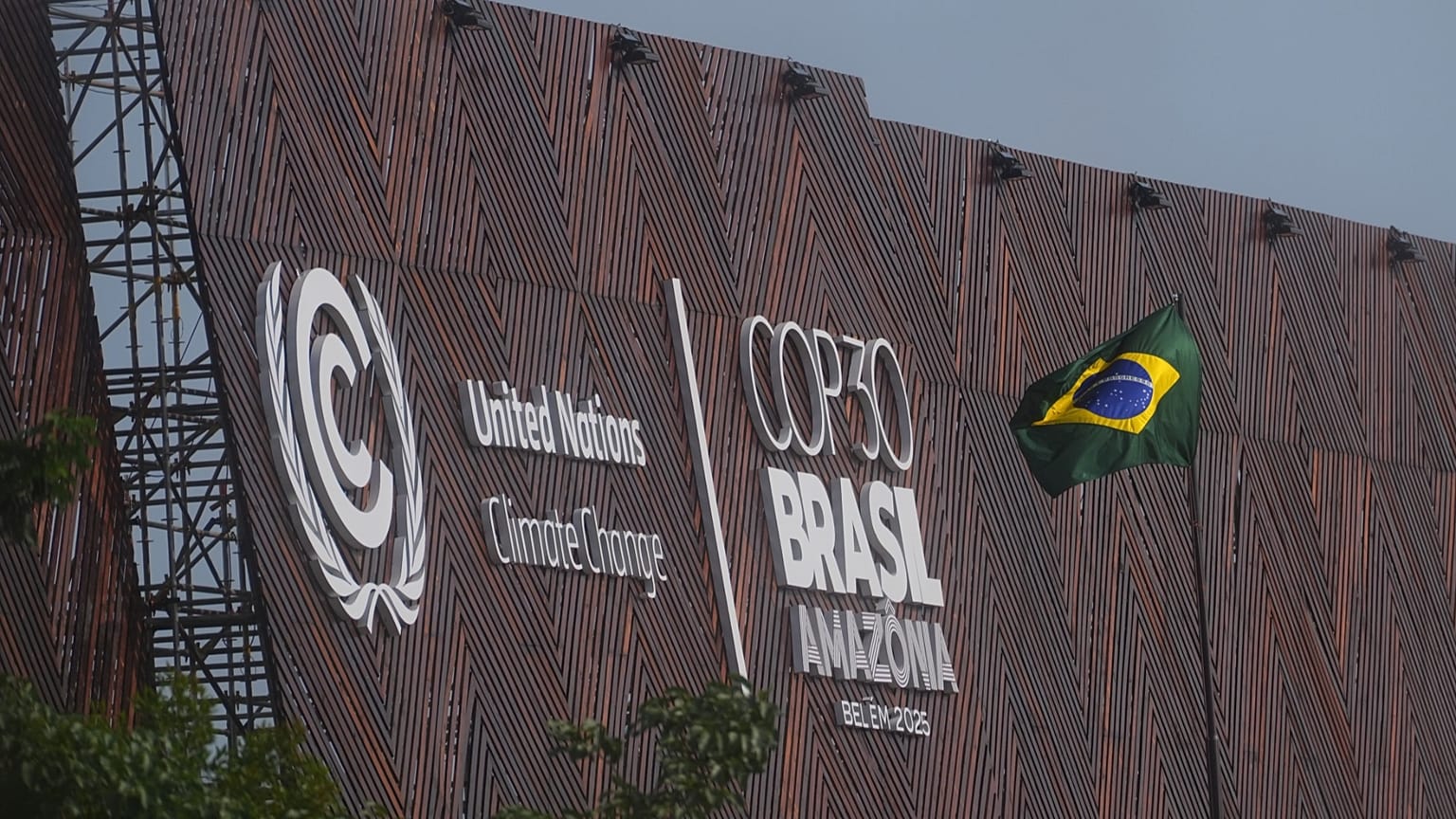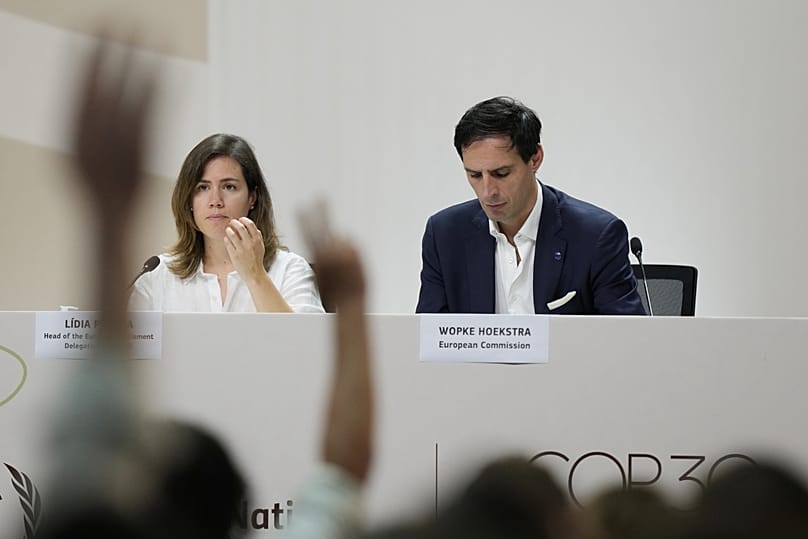As the UN flagship climate summit failed to agree on a roadmap to phase out fossil fuels, the European Union finds itself increasingly alone in a world distancing itself from its climate ambitions.
The UN climate summit COP30 in Brazil's Belem concluded with a final text that avoided any roadmap for phasing out fossil fuels, drawing criticism that described the outcome as an "empty deal" and a "moral failure".
The United States' withdrawal from international climate talks has created a political and financial vacuum, with US President Donald Trump describing climate change as a "con job".
Countries that attended the UN's flagship climate change conference whose economies rely heavily on fossil fuel production, like Saudi Arabia and the United Arab Emirates, were openly opposed to any target or roadmap to phase out fossil fuels.
One day before the end of COP30, the EU threatened not to endorse the final text, which had to be approved by consensus by nearly 200 nations. In the end, the EU did not see other option than backing the paper while recognising its lack of ambition.
Despite the conference's outcome, the 27-member bloc maintained its commitment to reducing air pollution and global warming by upholding the 1.5°C limit and transitioning away from fossil fuels, vowing to continue work at home and to finance clean projects abroad.
"It is not perfect, but it is a huge step in the right direction. The EU stood united, fighting for ambition on climate action," said European Commissioner for Climate Action Wopke Hoekstra.
EU needs to forge more coalitions
Dutch MEP Mohammed Chahim (S&D) said Brazil's President Luiz Inacio Lula da Silva set the bar high and the EU arrived at the COP with the intention of taking the lead in a coalition of ambitious countries.
However, the current fragmentation within the international order has hampered success, the Dutch lawmaker said.
"The resistance from, among others, the oil states was too great, and the geopolitical balances have clearly shifted. Together with the United Kingdom, the EU had to row against the tide to salvage any ambition," said Chahim, also referring to a BRICS front which has opposed acting decisively on phasing out fossil fuels.
BRICS — an acronym for Brazil, Russia, India, China and South Africa — is a 10-member organisation of emerging economies led by Moscow meant to counter the West.
Darragh O’Brien, Irish climate, environment and energy minister, said that supporting the final text was "not a choice made lightly". O'Brien regretted the nonexistence of a credible roadmap for the phase-out of fossil fuels, a step more than 80 countries, including Ireland, called for during COP30.
Former US Vice President Al Gore regretted on X that fierce opposition by petrostates blocked the development of a roadmap away from fossil fuels.
"Despite petrostates’ attempt to veto the development of a roadmap away from fossil fuels, the Brazilian COP30 Presidency will lead an effort to develop this roadmap, bolstered by the more than 80 countries that already support the effort," added Gore.
Ignoring science and law
Climate researchers and environmentalists have voiced similar echoes.
Nikki Reisch, the Centre for International Environmental Law's director of the climate & energy programme, said the COP's outcome was an "empty deal" that ignored repeated calls from science and law to agree on a transition plan to bury fossil fuels and "make polluters pay".
"While the countries most responsible for pushing the planet to the brink point fingers, dig in their heels, and tighten their purse strings, the world burns. However, big polluters may try to insulate themselves from responsibility or edit out the science, it does not place them above the law," Resich added.
Doug Weir, director of the Conflict and Environment Observatory, dubbed the final text a "moral failure" for communities already facing the worst impacts of climate change.
"We’re no further along than we were in Dubai two years ago and facing an even tougher mountain to climb," said Weir.
If pledges agreed at COP28 in Dubai had been implemented, the rate of global warming could have been cut by a third within 10 years and half by 2040, according to a report from environmental think tank Climate Analytics, assessing scenarios where all governments managed to triple renewable energy, double energy efficiency and act on methane by 2030.
"In that world, warming could be kept below 2°C this century, rather than the 2.6°C we will get from current policies," said Bill Hare, Climate Analytics' CEO.
World leaders gathered for two weeks in the Amazonian city of Belém to take stock of global efforts to prevent global temperatures from rising above 1.5°C, 10 years after the Paris Agreement committed the world to take real action against global warming.
The next COP will take place in Australia and Turkey.
















